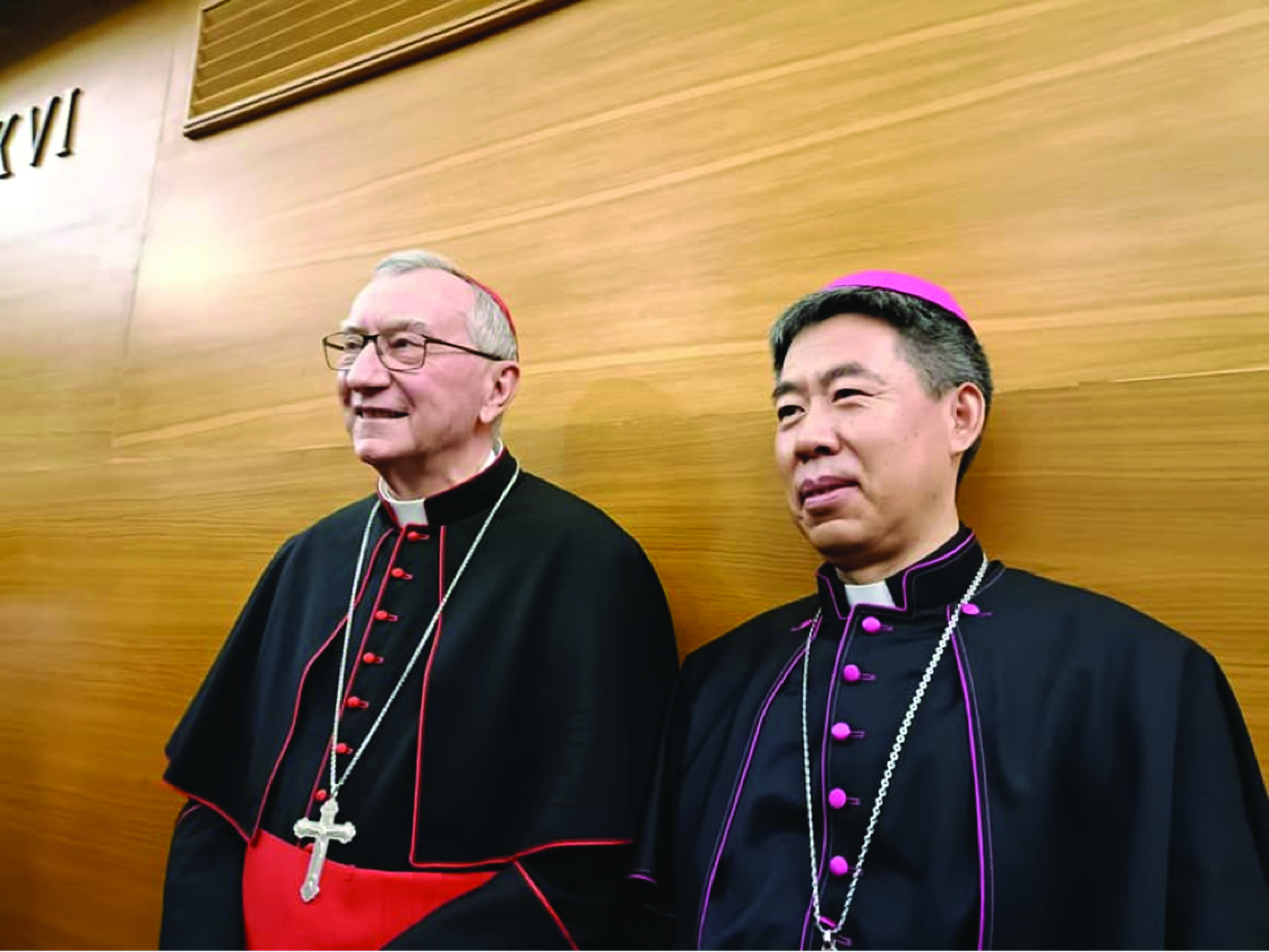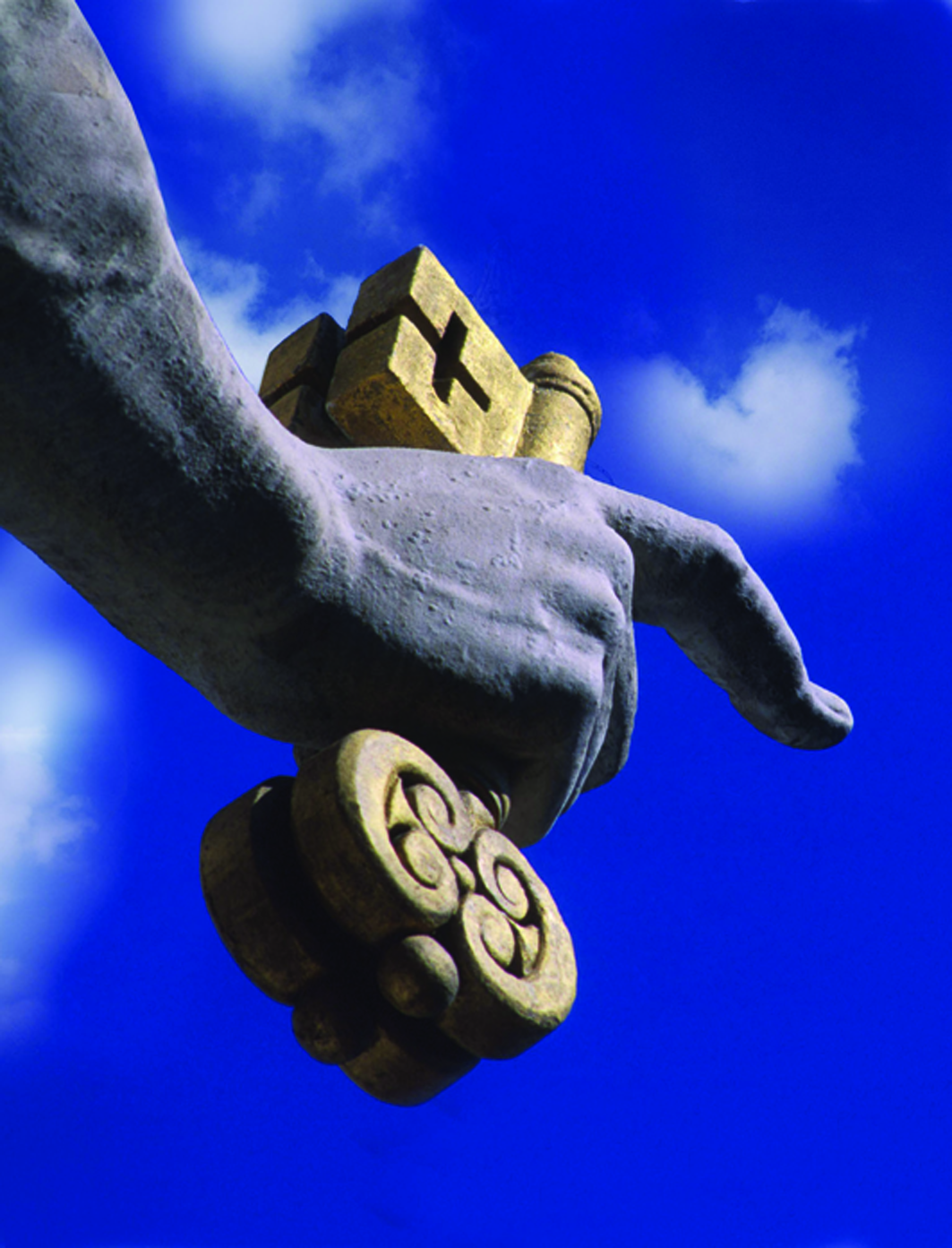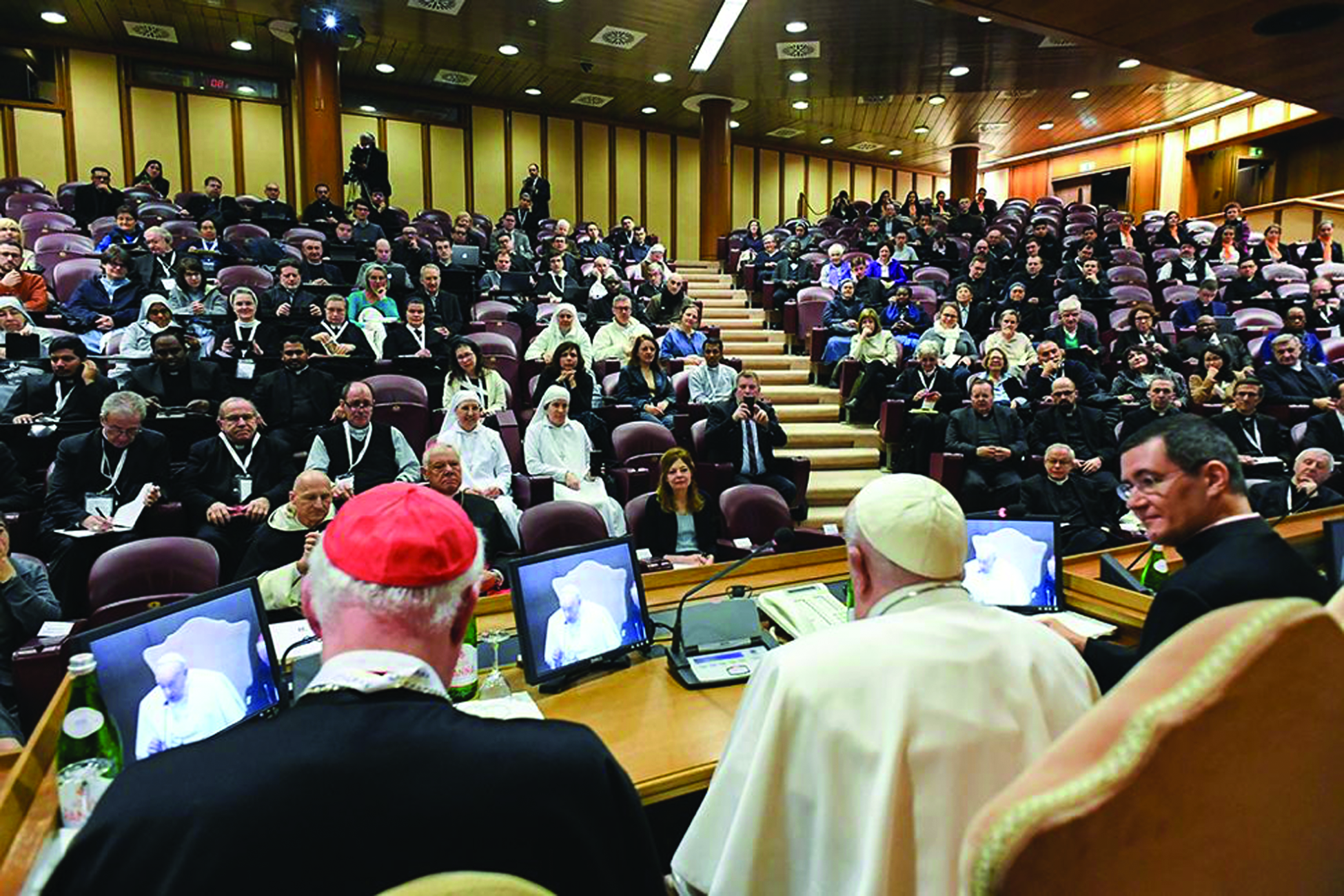In February, the young American Archbishop Charles Brown, 52, began his difficult mission in Ireland as the Pope’s nuncio, presenting his credentials to the Irish president and celebrating a Mass in St. Mary’s Pro-cathedral of Dublin. Here, the complete text of his first homily in Ireland…
“Something new is happening. I am convinced that the Lord is preparing something beautiful for his Church.” With these words filled with hope, Archbishop Charles J. Brown this winter initiated his new mission as apostolic nuncio to Ireland. And a first hope for God’s special grace for the Catholic Church in Dublin, he said, is the upcoming International Eucharistic Congress which will take place in the Irish capital city from June 10-17.
Brown, 52, an archbishop only since January 6 when he was consecrated personally by the Pope, worked for many years under Cardinal Joseph Ratzinger (now Pope Benedict XVI). Today, as the Pope’s “ambassador” to Ireland, he has been called to take up a delicate and difficult mission to try to help heal the Catholic Church after news of clerical sexual abuse of children rocked the nation.
On March 20 in Rome, the Vatican released an 8-page summary of the findings and recommendations of a visitation to four archdioceses and to religious institutes and seminaries in Ireland.
The essential finding was serious shortcomings over many years in the handling of accusations of the sexual abuse of minors. Still, the report concluded, bishops, clergy and lay faithful today are now doing an “excellent” job in creating safe environments for children.
The investigators also warned of a “fairly widespread” ten-dency among priests, religious and laity to hold unspecified unorthodox views.

Archbishop Charles Brown, the new apostolic nuncio to Ireland, inspects the honor guard after presenting his credentials to Irish President Michael Higgins in Dublin on February 16 (CNS photo).
“This serious situation requires particular attention, directed principally toward improved theological formation,” the visitors found, stressing that dissent from the Church’s teaching authority would only hinder its renewal.
Jesuit Father Federico Lombardi, Vatican spokesman, said “the summary is a synthesis of all the reports, materials,” observations and recommendations made by the visitors.
“The Holy See re-echoes the sense of dismay and betrayal which the Holy Father expressed in his Letter to the Catholics of Ireland (2010) regarding the sinful and criminal acts that were at the root of this particular crisis,” the summary said.
The investigators said they were able “to verify that, beginning in the 1990s, progressive steps have been taken toward a greater awareness of how serious is the problem of abuse” and how urgent it is to respond adequately and prevent abuse in the future.
Aspects of seminary life that still require improvement included: formation “rooted in authentic priestly identity” to prepare men for a life of celibacy; better governance of seminaries by bishops; “more consistent admission criteria” and a more thorough examination of a candidate’s suitability for the priesthood; and child protection education as a part of seminarians’ academic studies.
Pope Benedict XVI ordered the visitation in response to an abuse crisis which Irish government reports said had gone on for decades within a “culture of secrecy.”
The investigation, which began in November 2010 and ended in the spring of 2011, was not meant to deal with past or present allegations, but to monitor how the anti-abuse guidelines established in 2009 by the Irish Church were being followed, and how effective they had proven.
The abuse victims’ support group One in Four criticized the report, insisting that “the Vatican is still not accepting responsibility for its role in creating the culture of purposeful cover-ups of the sexual abuse of children.”
The archdiocesan visitors were British Cardinal Cormac Murphy-O’Connor, retired archbishop of Westminster, who investigated the Archdiocese of Armagh, Northern Ireland; Cardinal Sean P. O’Malley of Boston, who examined the Archdiocese of Dublin; Cardinal Thomas Collins of Toronto, who conducted the visitation to the Archdiocese of Cashel; and Archbishop Terrence Prendergast of Ottawa, Ontario, who examined the Archdiocese of Tuam.
New York Cardinal Timothy M. Dolan led the visitation to seminaries.
On February 19, in St. Mary’s Pro-cathedral of Dublin, a liturgical reception was held for the new nuncio after he presented his credential letters from the Pope to the Irish president, Michael D. O’Higgins, on Thursday, February 17. Brown left his office at the Congregation for the Doctrine of the Faith at the end of January.
Brown is the third American to be apostolic nuncio to Ireland, after Archbishop Gerald O’Hara and Archbishop Joseph McGeough. He becomes one of the few papal nuncios not holding a diploma from the Vatican diplomatic school, the Ecclesiastical Academy, located behind the Pantheon. In his case, his long experience at the doctrinal congregation, whose mission is also to oversee some aspects of the discipline of the clergy, was seen as providing him with the knowledge and experience needed for this post.
Brown did not avoid mentioning the scandals during his homily. But he set the scandals within a context of hope for forgiveness, purification, and renewal.
Presenting himself, he noted his long collaboration with Cardinal Ratzinger, and confirmed the Pope’s commitment to addressing and healing the Church following the abuse scandals.
“Pope Benedict,” he said, “knows that these recent years have been difficult for Catholic believers in Ireland. Again I speak from my own experience when I tell you that Pope Benedict was scandalized and dismayed as he learned about the tragedy of abuse perpetrated by some members of the clergy and of religious congregations. He felt deeply the wounds of those who had been harmed and who so often had not been listened to.
“From the beginning, Pope Benedict was resolute and determined to put into place changes which would give the Church the ability to deal more effectively with those who abuse trust, as well as to provide the necessary assistance to those who had been victimized. Pope Benedict has been relentless and consistent on this front, and I assure you that he will continue to be.”
The new nuncio to Ireland then spoke about the Gospel of that Sunday, in which a paralyzed man is healed by Jesus. Brown noted that sin is more harmful than any physical disease, including paralysis. Sin is a “spiritual disease which afflicts us, which can paralyze us,” he said.
“The Church herself is wounded by the sins of her members,” he added. “And just as sin produces a kind of spiritual paralysis in the individual, a radical lack of the spiritual energy which is grace, so too there can be a kind of spiritual paralysis in sections of the Church, where that energy seems to have disappeared, enthusiasm is dissipated, liturgical life grows cold.”
The Church “does not live because of offices, committees and structures (as important as these may be),” he said. “She lives by the presence of Jesus Christ — our way, our truth and our life. And his presence is experienced in many ways, but most powerfully in his word and in his sacraments — above all, in the sacrament of the Holy Eucharist.”
The Eucharist will be the center of attention for the Catholic Church in Dublin in coming months for the International Eucharistic Congress which will be held from June 10 to 17 of this year.
“It is renewed faith and love for the Lord in the Eucharist that will renew our lives and renew the life of the Church,” Brown said. “It is his true presence in the Eucharist which can heal our own spiritual paralysis, which fills us with light and joy, which gives meaning to our lives, and which prepares us for the life of the world to come.” He finished his homily assuring that “something new is indeed happening” and that “the Lord is preparing something beautiful for his Church.”






Facebook Comments